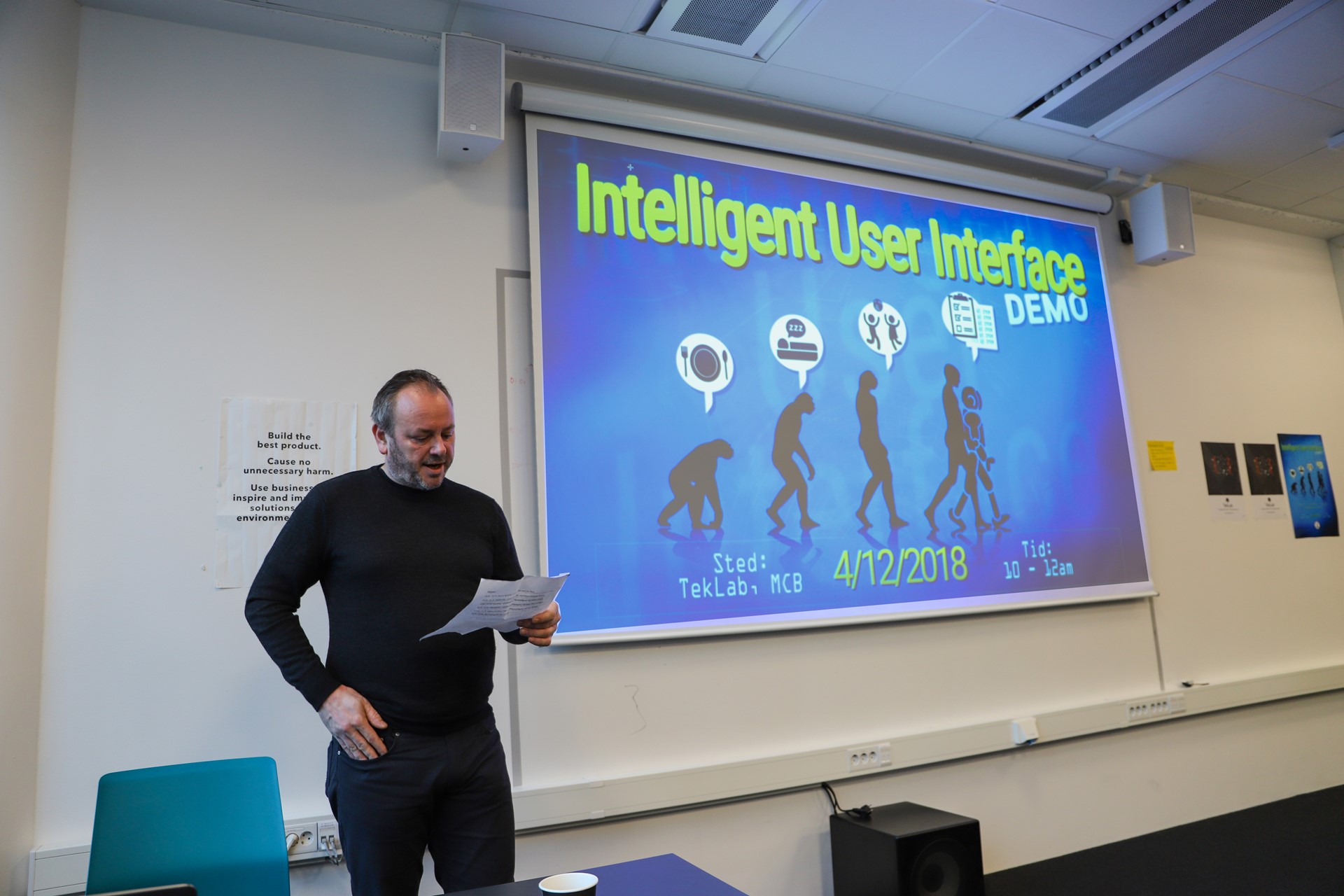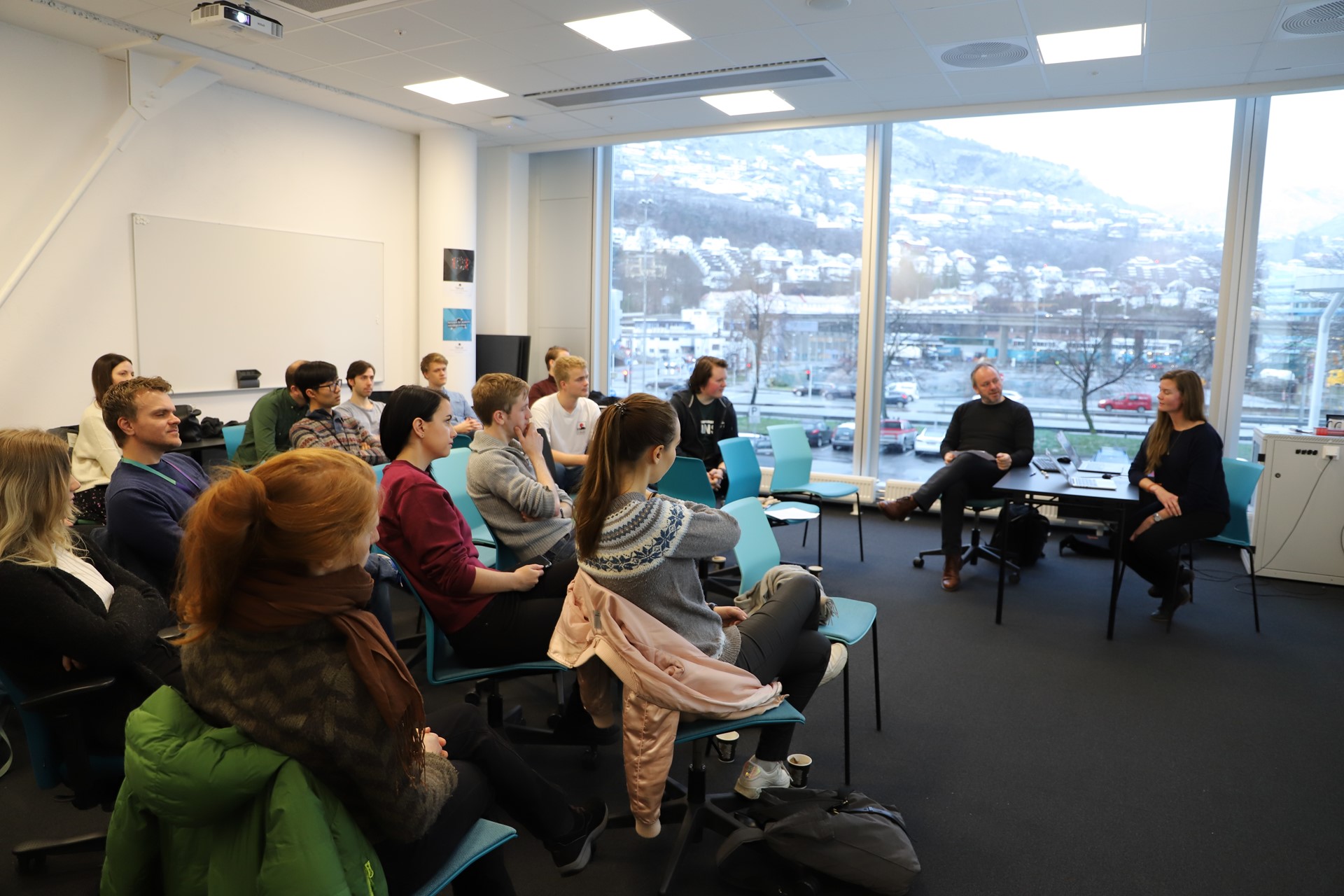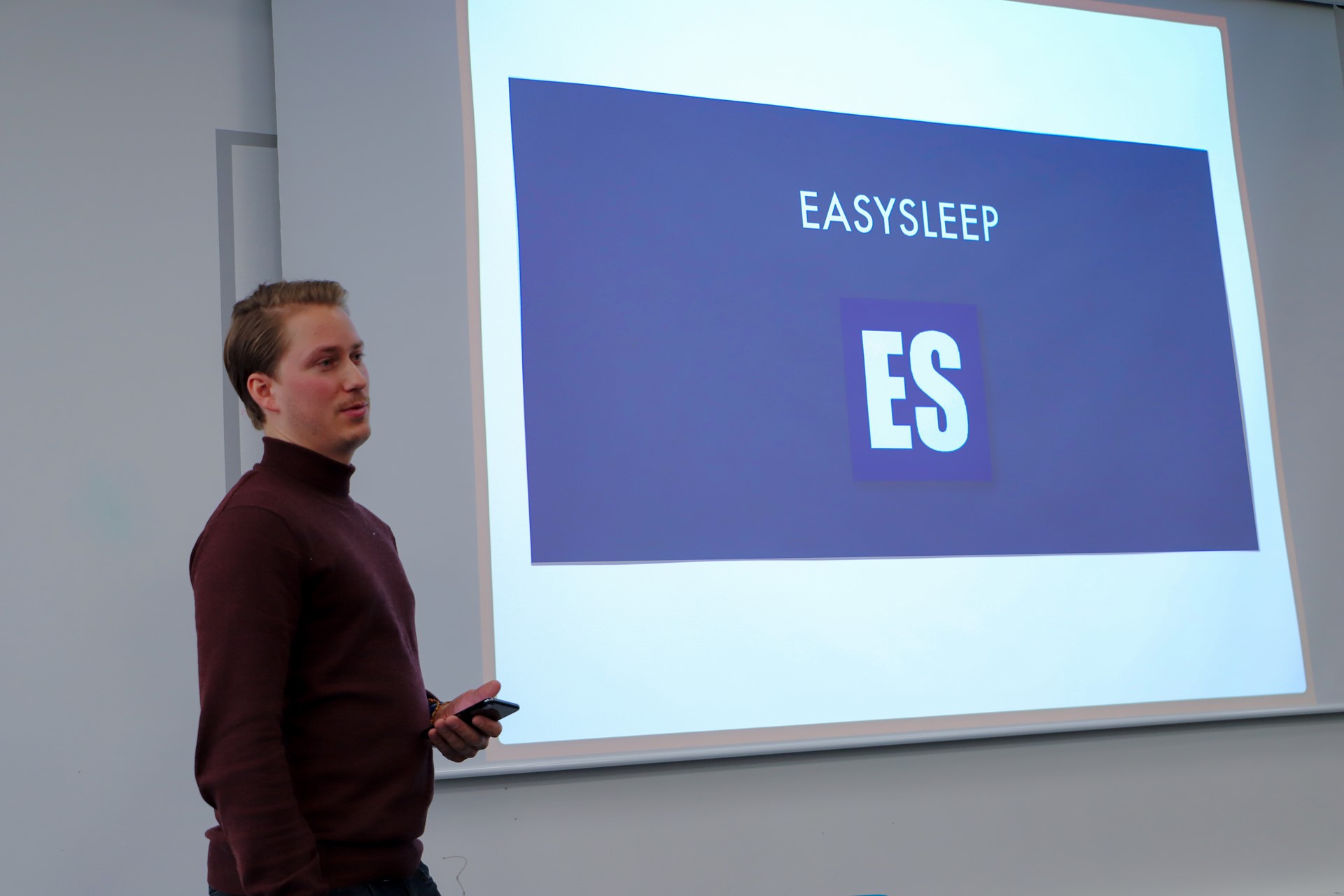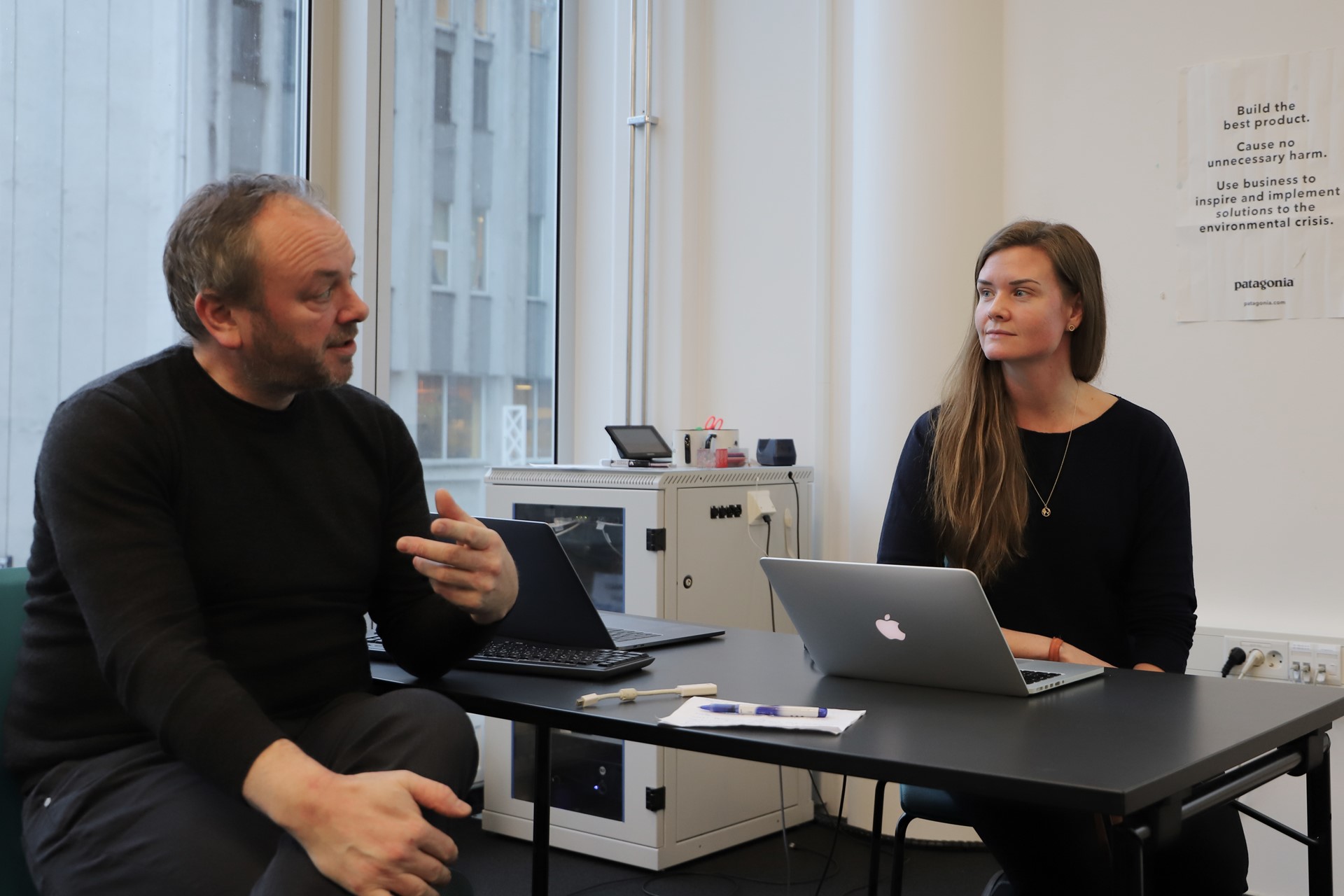- This fall, we have challenged our students to dig into the theoretical aspects of new technology, and to build their own applications, said Professor Lars Nyre at the University of Bergen (UiB).
- While the prototypes are simple in a technical sense, they pose some complex philosophical and ethical questions.
Four students have this semester made speech assistants that feel intelligent to the user, using core technology from Capsule FM, and Apple script.
 Professor Lars Nyre introduced the students and the course. (Photo credits: Zulfikar Fahmy / UiB)
Professor Lars Nyre introduced the students and the course. (Photo credits: Zulfikar Fahmy / UiB)
Nyre asked:
- What is intelligence?
- Just because we perceive the application to be intelligent, it doesn’t have to be so. Technology can help us out with different tasks, and if the performance is adequate, we can easily be fooled. But could it in the future have consciousness?
Rikard Gjengstø Stormo was the first student to present, and attempted to answer the question.
- I actually cannot know for sure whether you guys have a conscience. And it is even harder to tell for a robot.
 Students and faculty members were present for the demo, which was held at Media City Bergen. (Photo credits: Zulfikar Fahmy / UiB)
Students and faculty members were present for the demo, which was held at Media City Bergen. (Photo credits: Zulfikar Fahmy / UiB)
Emotional technology
Stormo made a robot buddy that keeps people company by playing the game ’20 questions.’
- In a futuristic scenario, I could expand on it, make it read your facial expressions, and respond to your feelings like a human would. But what happens if you develop an unhealthy one-sided attachment to a robot that cannot reciprocate your feelings?
Petter Omdal then introduced his app that helps babies sleep. Which could solve a major pain point for many parents.
- My application can play white noise and other soothing sounds, like calm music or the crackling of a fireplace, he explains.
- It is designed to make life easier for parents, but I can see some tough questions on data and privacy that needs to be tackled further down the road.
- Can the baby develop separation anxiety to this app?
 Student Petter Omdal presenting his application. (Photo credits: Zulfikar Fahmy / UiB)
Student Petter Omdal presenting his application. (Photo credits: Zulfikar Fahmy / UiB)
It is too early to conclude on attachment and separation anxiety. But after seeing Mats Åsby Jakobsens productivity app in action, we know for sure that these applications can trigger emotions like frustration and anger.
It starts with a gentle reminder, and continues to remind us with an increasingly intense and nagging tone, if you leave a task undone for too long.
- Have you started working on your project plan yet?
- Seriously, you need to get a grip. What are you doing?
From harmony to dystopia
While the first three applications aim to replace humans, or minimize interactions, Linn Schnell’s cooking assistant, Albert, makes recipes easier to follow, so we can cook more meals together with our loved ones.
 Professor Lars Nyre in discussion with Linn Schnell, after her presentation of a smart cooking assistant. (Photo credits: Zulfikar Fahmy / UiB)
Professor Lars Nyre in discussion with Linn Schnell, after her presentation of a smart cooking assistant. (Photo credits: Zulfikar Fahmy / UiB)
- My robot helps you out with smart dinner recipes, to make cooking an easy and fun social activity, she explains.
- But since we were asked to look into the future for this assignment, I do have some concerns with data privacy, she continues.
- We can easily expand this into a smart shopping app that keeps track of what you eat, and what is in your fridge. If we merge that with sleep data from Petter’s app, and other health data, we could end up with this scenario:
“Sorry, you have eaten too much unhealthy food recently, and you skipped gym class today. Your Netflix account will be suspended until you have improved your score."
- Luckily, after working hands on with this project, I see how challenging it is to develop the technology. As of today, our capabilities are not even close to achieving these dystopic visions.
Written by Hilde Gudvangen
